How to replace a refrigerator thermistor
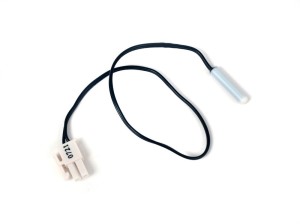
This DIY repair guide gives step-by step instructions for how to replace a refrigerator thermistor. The thermistor senses temperature changes in the refrigerator and sends the control board a signal about the temperature change. If the thermistor fails, the refrigerator won't stay at the temperature you set, resulting in items either freezing or spoiling because it's too cold or too warm. Replace the thermistor with the manufacturer-approved fridge part that fits your model.
Watch our troubleshooting video to determine whether the thermistor in your refrigerator is working. Although the thermistor in this video might be in a different location, the troubleshooting is the same.
Use this basic procedure to replace the thermistor in Kenmore, Frigidaire, Whirlpool, GE, Maytag, Amana, KitchenAid, Samsung, LG, Gibson, Crosley and Haier refrigerators.
Instructions
- 01.
Disconnect electrical power
Unplug the refrigerator or shut off the circuit breaker for the refrigerator.
Tip: Move highly perishable food to a cooler or other cooled space. The refrigerator will be without power for about 30 minutes, which shouldn't affect most refrigerated or frozen foods. - 02.
Remove the thermistor cover
Locate the thermistor in the refrigerator section; it’s under a small plastic cover attached to the surface of the back wall, side wall or ceiling.
Release the thermistor cover and pull the thermistor out of the cover.
Tip: See the parts list diagram for your refrigerator for help locating this component.
PHOTO: Release the thermistor cover.
- 03.
Remove the thermistor
Pull the thermistor out of the mounting clip and unplug the wire harness. Remove the thermistor.
- 04.
Install the new thermistor
Attach the thermistor to the mounting clip and then to the wire harness.
- 05.
Attach the cover
Reattach the thermistor's cover and reinstall any shelves you removed.
- 06.
Restore electrical power
Plug in the refrigerator or turn on the house circuit breaker to restore power.
Most common symptoms to help you fix your refrigerators
Choose a symptom to see related refrigerator repairs.
Main causes: damaged door seal, faulty defrost sensor or bi-metal thermostat, broken defrost heater, bad defrost timer o...
Main causes: control board or cold control failure, broken compressor start relay, compressor motor failure, defrost tim...
Main causes: blocked vents, defrost system problems, evaporator fan failure, dirty condenser coils, bad sensors, condens...
Main causes: leaky door gasket, defrost system failure, evaporator fan not running, dirty condenser coils, condenser fan...
Main causes: jammed ice cubes, broken ice maker assembly, dirty water filter, kinked water line, bad water valve, freeze...
Main causes: blocked air vents, compressor problems, condenser or evaporator fan not working, control system failure, se...
Main causes: water valve leaking, frozen or broken defrost drain tube, overflowing drain pan, cracked water system tubin...
Things to do: clean condenser coils, replace the water filter, clean the interior, adjust doors to prevent air leaks, cl...
Most common repair guides to help fix your refrigerators
These step-by-step repair guides will help you safely fix what’s broken on your refrigerator.
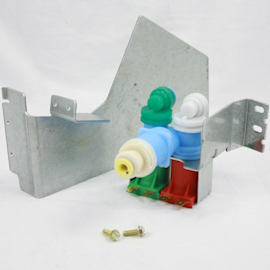
How to replace a refrigerator water valve
Replace the water valve that feeds water to the ice maker and water dispenser if it no longer controls the flow of water...
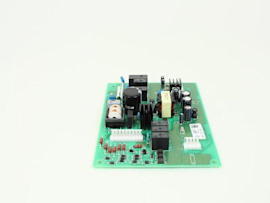
How to replace a refrigerator temperature control board
If the temperature in your refrigerator doesn't match the temperature you set, the problem could be the temperature cont...

How to clean refrigerator condenser coils
Help your refrigerator run more efficiently by cleaning the condenser coils. It's easy and takes just a few minutes....
Effective articles & videos to help repair your refrigerators
Use the advice and tips in these articles and videos to get the most out of your refrigerator.
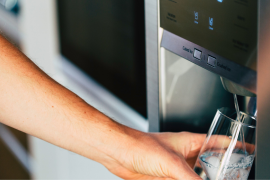
No matter what style Maytag refrigerator you have, we can walk you through replacing the water filter....

Learn about all the convenient features on our Sears PartsDirect website that make your parts purchases easier....
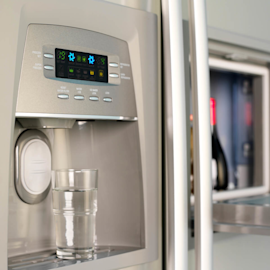
If your refrigerator's ice maker isn't producing as much ice as it should, or water is flowing poorly from the dispenser...
